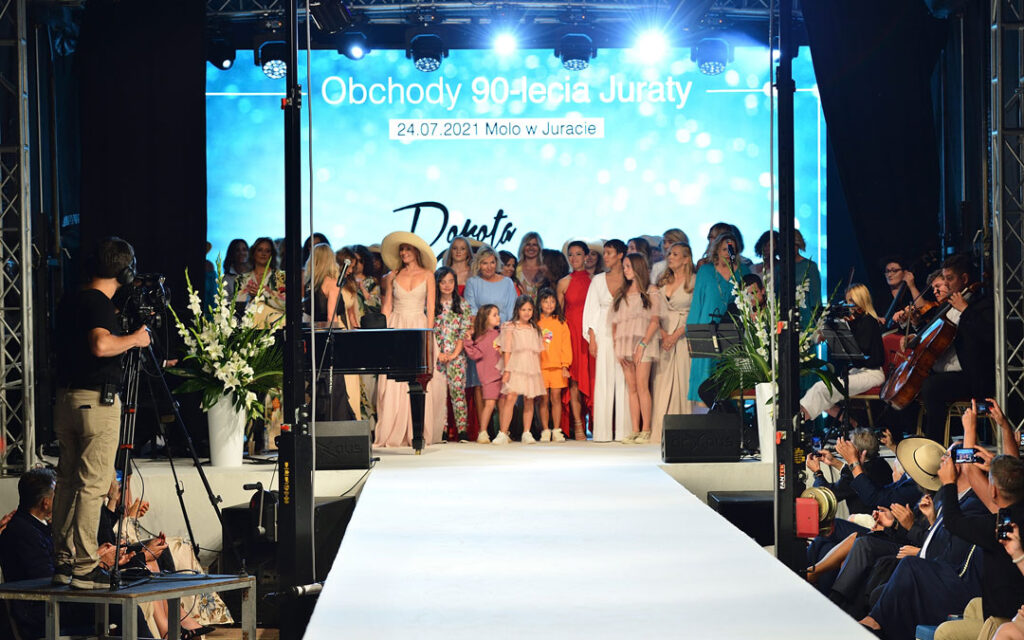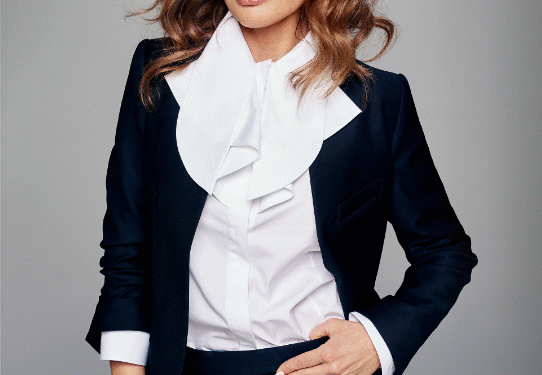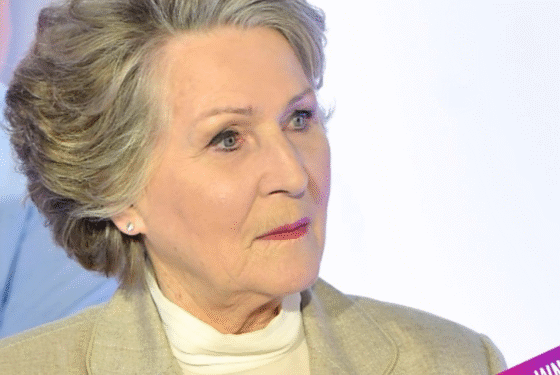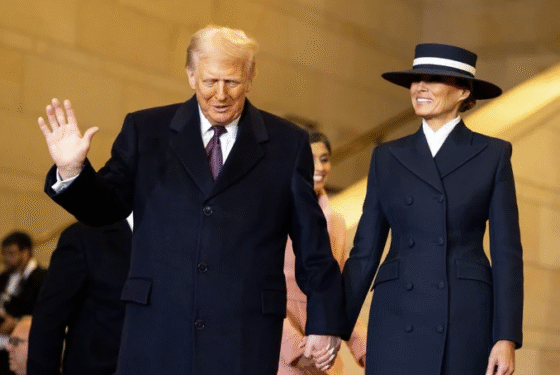
At the bottom of the Baltic Sea, the Lithuanian Goddess Jurata lived in an amber palace. One day, when she heard that the fisherman Kastytis was catching too many fish from the sea, she swam to his boat to punish him, but when she saw him, she lost her head for him. When the god Perkun learned about the relationship with the mortal, out of jealousy he destroyed Jurata’s palace with lightning and chained her to a rock at the bottom of the sea. According to legend, amber found on beaches comes from the tears of Jurata, mourning her beloved, killed by an angry god.
It is collected by those who have been coming to Jurata to relax for 90 years. In the book “Jurata. “Resort from nothing” Małgorzata Abramowicz writes that it was created mainly with the money of entrepreneur Moses Lewin, who bought most of the shares of Jurata, a company with government concessions. The town was quickly electrified, had a water supply system, promenades, tennis courts and swimming pools. In 1931, the first summer season was officially opened. Jurata was a place for artists, politicians and industrialists. Many guesthouses were built here, as well as the famous Lido hotel – once the most exclusive in the entire Jurata, today it falls short of the highest standards, although it still beats others with its perfect location.
Eugeniusz Bodo, Jan Kiepura, the Halama sisters, and Tola Mankiewiczówna visited here. A double room cost PLN 25 (the average monthly salary was PLN 150). Magdalena Samozaniec called it a luxurious passenger ship from which no one wants to get off. The writer often visited Jurata at the summer villa of her father, Wojciech Kossak. As befits a satirist, she slightly mocked the snobbish entertainment of Jurata’s rich patrons, and in one of her columns she even called her “Durata”, for which she was scolded by her father, who in turn loved staying and creating here. In 1934, approx. 20 comfortable guesthouses, hotels and villas. President Ignacy Mościcki, Minister of Foreign Affairs Józef Beck, Count Potocki, Duchy Czetwertyński and Count Tyszkiewicz had residences here, and Gen. Władysław Sikorski. In addition to celebrities, holidaymakers arrived from all over Poland – by train, by ship (the journey from Gdynia to Jastarnia took an hour), and, from 1935, when the road was built, also by car. During the Second Polish Republic, Jurata was considered the best resort in Poland. The town was teeming with life until the outbreak of the war.
And although the pre-war image of this town is long gone, Jurata still has its numerous supporters. Some people want to find the old atmosphere here, those who are more snobbish emphasize their status by spending their holidays here, others are simply sentimental about it for obvious reasons. Exclusive apartment buildings are adjacent to modernist villas from the 1920s, with occasional relics of the Polish People’s Republic, i.e. huge holiday homes such as Kaper. The place of the former Cafe Casino is occupied by the Bryza hotel, on the opposite side the exclusive Royal Tulip is to be built, because Jurata, with its interesting pre-war history, is still popular with tourists and investors.
Over the last 20 years, many exclusive, refined and comfortable holiday resorts, guesthouses and hotels have been built here. On the occasion of the 90th anniversary of the resort, on July 24, 2021, an extraordinary event took place on the Jurata Pier, organized by the Mayor of Jastarnia, Mr. Tyberiusz Narkowicz, Dorota Goldpoint and the “Serce nie ma wrinkles” Foundation.
The central event of the celebration of the 90th anniversary of Jurata’s existence was a ceremonial concert of stars – a recital by Tomasz Stockinger, who took everyone on an artistic journey to the beginnings of Jurata’s existence with songs from the 1920s and 1930s, and a concert by Irena Santor, who moved the gathered guests with a song with the Jubilarian in “There are no more wild beaches” background. During Tomasz Stockinger’s performance, Anna Iberszer and her dance partner Piotr Woźniak danced the tango in a masterful way.
Irena Santor is the undisputed First Lady of Polish song. Her crystal-clear voice, musical exceptionality and interpretive skill make her a timeless Artist of great stature. Everyone of all ages knows her, and her songs are still acurrent and still sound with the same great power, evoking a whole lot of wonderful emotions. I am proud and extremely grateful to Irena that, despite her career ending, she agreed to perform during these celebrations. – emphasized Dorota Goldpoint, at whose invitation Mrs. Irena came to Jurata.
The event could be held thanks to the huge support from: the Main Event Sponsor – Bank Gospodarstwa Krajowego, the Event Partner – Totalizator Sportowy, the owner of the LOTTO brand, and cooperation with other partners.
Full article at odquchni.pl



